The House Determines Everything
May 27, 2020
Americans spent a lot less during the shutdown.
In March, the US personal savings rate shot to 13%, the highest it’s been in four decades. And consumer revolving debt, which is mostly credit card debt, dropped by $28 billion.
Part of this came from people reigning in small discretionary purchases, like we discussed last week. No more lunches out. No more mindless purchases at a department store.
Really, people already knew how to save money, but they weren’t doing it. The shutdown forced a lot of folks to change small habits, which is awesome.
Now it’s time to tackle the big stuff.
How to Move the Needle
Your overall financial health is less about discretionary consumption than you think. If you really want to move the needle and save enough for a cushy retirement...
You need to control your fixed monthly costs.
What does that include? Well, there’s your rent or mortgage, which you have to pay no matter what. That might be $2,000 or $3,000 a month, or more. Plus $500 straight out the door for your car loan payment. Then you have credit card bills and probably student loans.
A good exercise is to add up all your fixed costs and look at the monthly total. This number is very important because it dictates how much you can save.
Here’s an example to get you started.
It All Comes Back to the House
Quite often, someone’s fixed expenses are very large, and their discretionary purchases are minimal. This all comes back to the house...
If you live in an expensive house, you’re going to fill it with expensive stuff. You’re going to buy an expensive car and wear expensive clothes. You will also have neighbors with expensive hobbies. So pretty quickly, you will acquire expensive hobbies, too.
Really, an expensive house leads to an expensive life.
But what happens when the money stops rolling in? Sure, you can eliminate small discretionary expenses like lunches out overnight. But it’s not that easy to downsize to a smaller house in a cheaper neighborhood. It’s not that easy to sell your expensive furniture and your expensive car. This stuff takes time, assuming you can do it at all.
Even then, you’re going to lose money in the process. Especially if you need to sell quickly, because you’ll be willing to except a lower sale price for all of this stuff.
You’re much better off buying the cheaper house from the start.
The Telltale Sign Your Fixed Costs Are Too High
Back in my Wall Street days, I worked with a lot of guys who bought really expensive houses and really expensive cars. Their fixed costs were enormous. Then Wall Street hit a downturn, these guys started making less money, and it put them in a real bind.
This happens to people up and down the income ladder all the time. In fact, I’m sure you know someone in this sort of predicament right now.
This is where your emergency funds come in...
Longtime readers know I encourage everyone to set aside $10,000 or enough cash to cover six months of living expenses, whichever is greater. You should keep this money in a separate bank account, far away from the money you use on a regular basis. (Please do not invest it in the stock market. You want zero risk of loss here.)
In the example we looked at earlier, the fixed monthly costs were $5,050. So our hypothetical guy would need $30,300 in emergency funds.
How many people have that much cash on hand? Do you?
So do the math and figure out what your fixed monthly expenses are. Then multiply that number by six. This is your emergency fund number.
If you cannot set that much cash aside, it’s a telltale sign that your fixed costs are too high, and you need to make some changes.
Maybe it’s time for a cheaper house... which is part of a long list of strategies I cover in Saving and Investing for the Retirement You Want. If you’re ready to move the needle and save enough for the retirement you really want, I encourage you to download a copy of this special report now.
Jared Dillian

Most popular upgrades from The Jared Dillian Letter…
Heartland Investor: Jared’s newest premium service. Built for investors who want to start building wealth deliberately, durably, and without the hype.
Each month, Jared and his long-time analyst Adam Crawford bring you one undervalued stock with a strong balance sheet, wide moat, and room to run. Designed for thoughtful, fundamentals-first investors who want a portfolio that can last.

The Daily Dirtnap: Jared’s macro newsletter for investing professionals. This daily letter takes a top-down approach, looking at the various asset classes, including stocks, bonds, currencies, and commodities. Join over 4,000 readers who read his market insights every weekday.


Street Freak: As the most active of Jared’s portfolio products, Street Freak is an aggressive stock-picking newsletter. It’s written for astute investors who crave creative, fresh macro analysis and forward-looking trade ideas so they can invest more opportunistically, without much hand-holding along the way. Adjusted for risk, of course.
